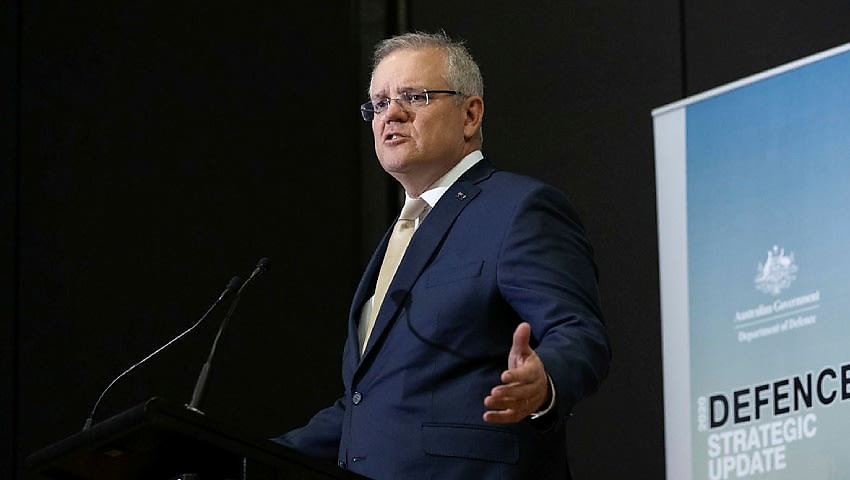National security resources must be reallocated to address challenges posed by the modern threat environment, according to one analyst.
To continue reading the rest of this article, please log in.
Create free account to get unlimited news articles and more!
The new trilateral security partnership between Australia, the United Kingdom, and the United States (AUKUS) – which will involve the development of at least eight nuclear-powered submarines for the Royal Australian Navy – has been touted as a major strategic coup amid an escalation in tensions in the Indo-Pacific.
This investment in advanced naval capability forms part of a $270 billion program to modernise the Australian Defence Force across all warfighting domains.
But according to Ben Scott, director of Australia’s Security and the Rules-Based Order project at the Lowy Institute, policymakers should broaden the distribution of finite national security resources to address a “widening array” of threats.
Scott acknowledges the ongoing threats posed by China and jihadist terrorism, but stresses that national security planners should widen their lens to prepare for new and emerging challenges.
“COVID-19 should, if nothing else, have shaken any confidence we have about the sources of future threats,” he writes.
“Ministers should lead this discussion. The pandemic may have been the conversation starter we needed.”
Scott points to Beijing’s use of grey zone warfare to manipulate the geostrategic environment.
“Stronger military capabilities – like the submarines – can strengthen our defences against military threats. But these are, at best, largely irrelevant to the more immediate contest in the grey zone,” he continues.
“At worst, they will spur China to work harder to influence Australian decision-making in the long period before the first submarines are built.”
To “prevail in the grey zone”, he adds, Australia should leverage its diplomatic and intelligence capabilities.
Scott laments the decline in funding for Australian diplomacy and the heavy focus on counterterrorism among intelligence agencies.
“The relative paucity of other security in the early 2000s enabled Canberra to concentrate narrowly on the jihadist threat to an extent that is unimaginable today,” he writes.
“It’s now necessary to right-size counterterrorism so that it is more commensurate with the risk and so that resources are made available for other challenges.
“Counterterrorism has improved enormously over the past 20 years, with a host of new tools – from legislation to technical intelligence gathering.”
But Scott concedes that “right-sizing” would require accepting more risk.
“That’s easier said than done,” he points out.
“The rhetoric and successes of the global war on terrorism have created a public that is especially intolerant of the risk posed by jihadists.
“We need to loosen the jihadist’s unique hold on the public imagination.”
The Lowy Institute analyst argues that policymakers would need to accept terrorism as a “problem to be managed, rather than one which can be solved”.
Scott continues: “It follows that the balance of effort should be domestic, where governments have more control, rather than internationally where the risk of unintended consequences is far greater.”
As such, policymakers should lead a new national conversation about risk and threats.
“Public servants have a role to play. Australia’s security chiefs are coming out of the shadows and their increased engagement of the public, including an annual threat assessment delivered by the director-general of ASIO, is a welcome trend,” he notes.
“This could be enhanced by a bigger picture assessment delivered regularly by the director-general of national intelligence (not unlike that provided to Congress by his US counterpart).
“Rather than just list the threats this should provide some sense of prioritisation. But ministers should lead this discussion.”
According to Scott, the COVID-19 pandemic can spark the national security conversation, with the public acknowledging the country must learn “how, rather than whether, to live with the virus”.
Scott concludes: “That’s true of most threats to national security. There are few solutions and a greater need for risk management and considered trade-offs.
“Canberra should be clear about this and have greater faith in the benefits of public debate. We will face more hard national security choices and more debate will help us make better decisions.”
Get involved with the discussion and let us know your thoughts on Australia’s future role and position in the Indo-Pacific region and what you would like to see from Australia's political leaders in terms of partisan and bipartisan agenda setting in the comments section below, or get in touch with

 Login
Login







